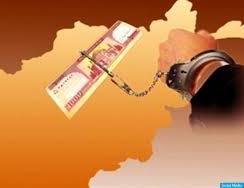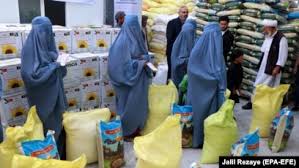Administrative corruption in Afghanistan
Administrative corruption in Afghanistan is one of the serious and deep-rooted problems that has caused significant damage to the administrative and economic structure of this country. This problem appears in different dimensions such as bribery, fraud, embezzlement, and abuse of job positions, and it is one of the main factors of poverty, unemployment, and lack of public services.
Reasons for administrative corruption in Afghanistan
- Lack of effective monitoring: In many cases, due to the lack of strong monitoring mechanisms, officials and civil servants engage in corruption without fear of punishment.
- Lack of transparency: The lack of transparency in government offices has led to the abuse of power.
- Weak laws and ineffective implementation: While there are anti-corruption laws in Afghanistan, their implementation often fails due to various reasons, including political influence and judicial weakness.
- Low level of income: The low salary and income of government employees is also one of the motivating factors to commit corrupt acts.
Effects of corruption
Reduction of public trust: Widespread corruption has caused people to distrust the government and public institutions.
Weakening the economy: resources that could have been spent on construction projects and public services, illegally fall into the hands of corrupt people.
Restriction of foreign investment: administrative corruption has prevented the attraction of foreign investors and has become an obstacle to economic growth.
Solutions to fight corruption
Creation and strengthening of independent regulatory institutions: The existence of independent regulatory institutions and their strengthening can reduce the level of corruption.
Transparency in administrative processes: Transparency in financial and administrative processes helps to reduce abuses.
Increasing salaries of civil servants: improving the level of income of civil servants can reduce the incentive to commit corrupt acts.
Serious implementation of laws: legal and decisive dealing with corrupt people, regardless of their social or political status, can prevent others from doing similar actions.
Administrative corruption in Afghanistan is a complex challenge that requires strong political will and broad society cooperation to deal with it.
The spread of corruption in the Taliban government
With the takeover of Afghanistan by the Taliban, hopes for reducing corruption have dimmed. The Taliban, who promised to establish law and order, have faced challenges in the fight against corruption, and this phenomenon continues to increase in the country’s governmental and administrative structure.
The reasons for the spread of corruption in the Taliban government
- Lack of independent monitoring and lack of transparency: Since the Taliban came to power, independent monitoring institutions have either disappeared or been controlled. In the absence of independent supervision and transparency in financial affairs, abuse of financial and administrative resources has increased greatly.
- Reduction of job opportunities and unfavorable economic situation: With the cut off of foreign aid and lack of investment in the economy, job opportunities have decreased and the unemployment rate has increased. This issue has led many employees to corruption and bribery.
- Weakness of the Taliban’s supervisory mechanisms: The Taliban do not have enough experience in running the country and their administrative mechanisms are not yet fully formed. As a result, there is a possibility of abuse and corruption for officials and employees.
- Divisions of power and internal differences of the Taliban: Within the Taliban government, there are differences between different groups and factions. These differences have caused some officials to pursue their personal interests and use public resources for their own benefit and their factions.
Examples of administrative corruption in the Taliban government
Bribery in the process of hiring and receiving services: There have been reports of bribes being received by Taliban officials for granting permits, hiring and providing services.
Misuse of foreign aid: International aid allocated to help the people of Afghanistan, instead of reaching the needy, is sometimes used illegally by individuals and authorities.
Acquisition of lands and properties: In some areas, there are reports of illegal acquisition of people’s lands and properties by some Taliban officials.
The effects of the spread of corruption in the Taliban government
Decrease in people’s trust in the government: Widespread corruption has caused a decrease in public trust in the Taliban and their government.
Worsening of the economic situation: administrative corruption prevents financial aid from reaching the needy sectors and also prevents economic growth and employment.
Reduction of investment and economic growth: the spread of corruption is an obstacle to attracting foreign investments and makes companies and investors refrain from investing in Afghanistan.
Solutions to reduce administrative corruption in the Taliban government
Establishing independent regulatory institutions: Strengthening and establishing independent regulatory institutions can help reduce corruption.
Financial and administrative transparency: Creating transparency in financial and administrative processes and providing regular reports to people and international institutions can help control corruption.
Increasing awareness and public participation: The Taliban can make society a partner in fighting corruption by increasing people’s awareness and encouraging them to report violations.
Creating anti-corruption policies and decisively dealing with violators: establishing and strictly implementing anti-corruption laws can reduce the motivation of corrupt people and create administrative order.

